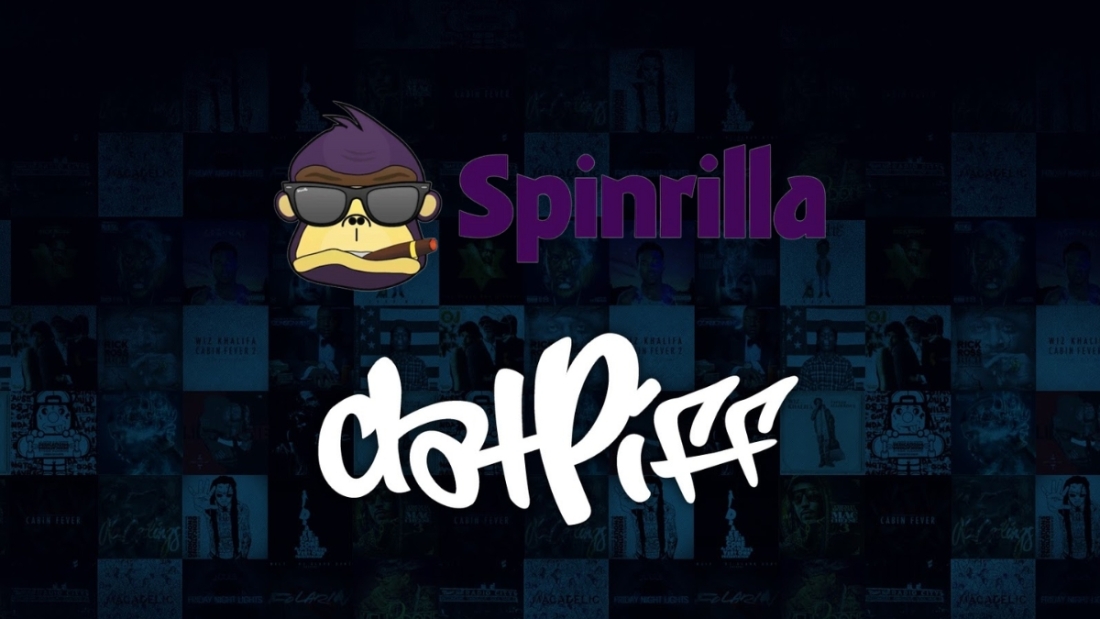Hip-hop has always been a genre that thrives on innovation and creativity. From its early beginnings to its global dominance today, hip-hop has continuously pushed boundaries and challenged the status quo, but many believe it has gone stale. Outside of the elite class of hip-hop artists, discovering who is “next” is more difficult than ever with all the digital media saturation.
One of the key elements that has contributed to the evolution of hip hop is the mixtape culture. Mixtapes played a pivotal role in the development of the genre, providing a platform for up-and-coming artists to showcase their skills and gain recognition.
As the digital era was on the rise, it dramatically redefined hip-hop. Mixtapes have been instrumental in the rise and distribution for numerous successful hip-hop artists, including Lil Wayne, Future, Meek Mill, Mac Miller, Gucci Mane, Young Thug, Wiz Khalifa, Curren$y, Travis Scott and the list goes on and on.
A few platforms can be considered the pioneers in this transformation, notably DatPiff and Spinrilla. However, as the dynamics of the music industry evolved, these platforms face the challenge of reinventing themselves to stay relevant and operate freely without getting sued.
The Rise and Influence of Mixtapes in Hip-Hop
Mixtapes served as a way for artists to bypass the traditional gatekeepers of the industry and connect directly with their fans. It also exposed artists when other rappers would hop on their beats and take it over, ie: No Ceilings by Lil Wayne. If you heard your beat on Lil Waynes mixtape, it was his beat now.
The mid-2000s to the early 2010s marked the golden era of mixtapes. Platforms such as DatPiff, LiveMixtapes, Spinrilla, and My Mixtapez emerged as key players during this period. Last resort was the old dirty YouTube to MP3 converter.
These platforms offered opportunity for artists to distribute their music, often for free, while the music industry was still figuring out how to commercially release songs and albums online on an organized platform.
This created a sense of exclusivity and excitement around mixtape releases, as fans eagerly awaited new projects from their favorite artists. It then turned marketing tool for artists, allowing them to build a loyal fan base and generate buzz around upcoming commercial releases with record labels. It also served as a great tool for maximizing all my storage on my iPod Nano.
The Legal Challenges of Mixtapes: Navigating Intellectual Property Rights
While mixtapes have been integral to the growth of hip-hop, they have also served as setbacks, as artists have faced legal challenges due to copyright infringement concerns. Mixtapes often contain samples of copyrighted material, and you know people aren’t asking permission to release these tracks online.
This has led to legal disputes between artists and record labels. However, many artists argue that mixtapes serve as a form of artistic expression and should be protected under fair use laws.
Navigating the legal landscape surrounding mixtapes remains a complex issue, and artists must be mindful of the potential legal implications when creating and distributing their music.
The use of uncleared samples in mixtapes has led to legal battles between artists, record labels, and mixtape platforms. For instance, Spinrilla found itself in hot water when it was sued by a group of record labels for copyright infringement. The platform was eventually ordered to shut down and pay a hefty fine of $50 million.
This highlights the challenge of preserving a part of hip-hop history that isn’t necessarily legal. The dilemma lies in finding a balance between nurturing creativity and respecting copyright laws. Recognizing this problem, DatPiff announced a partnership with the Internet Archive, a nonprofit dedicated to preserving digital material. However, the process of transferring data has proven to be complex and time-consuming.
The Technical Challenges: Maintaining and Preserving Archives
In addition to legal issues, mixtape platforms also face technical challenges. Maintaining archives of hundreds of thousands of mixtapes is no small feat. Broken links and server issues can lead to the loss of years of digital rap history. Feel free to go and download them and drop them in your Apple Music or Spotify library so you can have all those songs in your pocket.
The Shift to Streaming Platforms
Many artists have moved their music from mixtape platforms to streaming services like Spotify, Apple Music, and Tidal. These platforms allow artists to reach a larger audience and to monetize their work.
However, not all mixtapes have made it to legal streaming services. Some fan-favorite mixtapes have been altered due to clearance issues when they were released on streaming platforms. This has led to disappointment among fans who loved the original versions of these mixtapes.
The Need for Reinvention: DatPiff’s Revival
In light of these changes, mixtape platforms like DatPiff are taking steps to reinvent themselves.
DatPiff’s partnership with Internet Archive to make its library accessible, ensuring the preservation of its mixtape archives. This move signifies the platform’s commitment to adapting to the changing landscape of the music industry while preserving its rich history.
Similarly, LiveMixtapes has launched a new venture, LMT Pro. This is a distribution arm focused on allowing independent artists to monetize their streams, demonstrating a shift in strategy to keep up with the modern streaming era.
Conclusion
The evolution of the music industry, particularly the hip-hop genre, has been largely influenced by mixtape platforms like DatPiff and Spinrilla. These platforms have nurtured a generation of artists and contributed to the growth of the hip-hop culture.
However, as the industry moves towards streaming, these platforms face the challenge of adapting to the new landscape while preserving their rich history. Their ability to successfully reinvent themselves while respecting copyright laws will determine their relevance in the future.
The story of mixtape platforms is a testament to the transformative power of technology in the music industry. As these platforms evolve, they continue to shape the future of hip-hop, ensuring that this vibrant genre continues to thrive in the digital age.



Leave A Comment